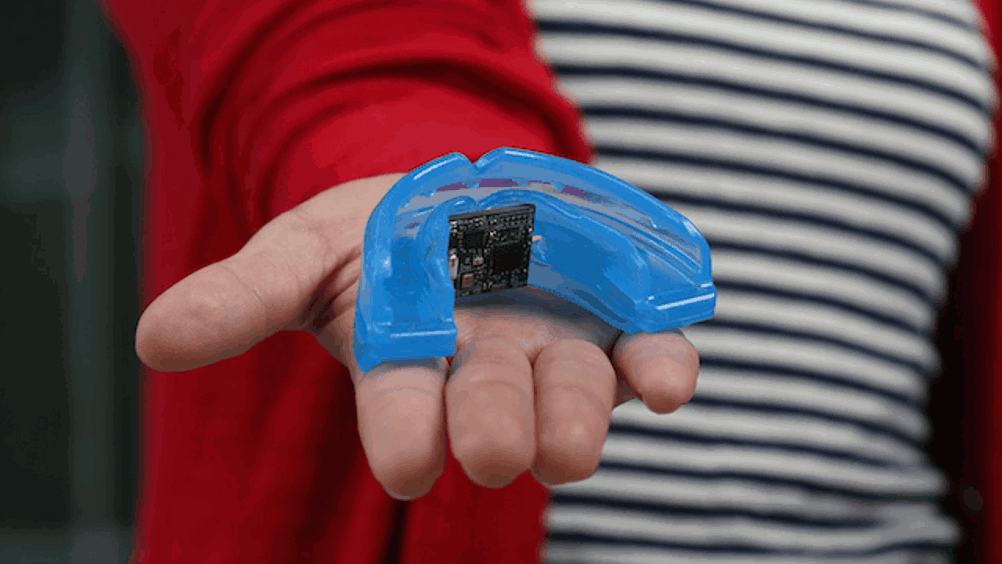Mouth guard sensor monitors saliva for signs of illness and stress
Engineers at the University of California San Diego have designed a mouth guard that monitors health markers in saliva and transmits the information to a handheld electronic device.

The proof-of-concept technology monitors health markers including lactate, cortisol and uric acid and could be used to non-invasively monitor patients, or provide indications of stress levels in soldiers and pilots. The research is detailed in a paper published in Biosensors and Bioelectronics.
“The ability to monitor continuously and non-invasively saliva biomarkers holds considerable promise for many biomedical and fitness applications,” said Joseph Wang, a nanoengineering professor who led the research with electrical engineering professor Patrick Mercier.
In a study to test the sensors, engineers focused on uric acid, which is a marker related to diabetes and gout. Currently, the only way to monitor the levels of uric acid in a patient is to draw blood.
To test the mouth guard, researchers collected saliva samples from healthy volunteers and spread them on the sensor, which produced readings in a normal range.
Next, they collected saliva from a patient who suffers from hyperuricemia, a condition characterized by an excess of uric acid in the blood. The sensor detected more than four times as much uric acid in the patient’s saliva than in the healthy volunteers.
Register now to continue reading
Thanks for visiting The Engineer. You’ve now reached your monthly limit of news stories. Register for free to unlock unlimited access to all of our news coverage, as well as premium content including opinion, in-depth features and special reports.
Benefits of registering
-
In-depth insights and coverage of key emerging trends
-
Unrestricted access to special reports throughout the year
-
Daily technology news delivered straight to your inbox










Water Sector Talent Exodus Could Cripple The Sector
Maybe if things are essential for the running of a country and we want to pay a fair price we should be running these utilities on a not for profit...